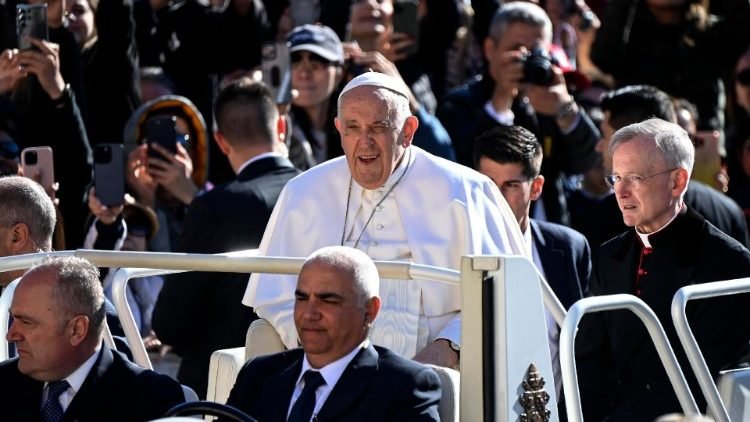At his weekly General Audience, Pope Francis continues his catechesis on apostolic zeal, and reflects on the prayer of monks and nuns as the “beating heart” of the Church’s mission.
By Joseph Tulloch
At his Wednesday General Audience, Pope Francis continued with his series of catecheses on “apostolic zeal”, this week focusing on the crucial role that monks and nuns play in the Church’s mission.
The Holy Father’s catechesis focused in particular on Saint Gregory of Narek, a medieval Armenian monk who, he said, offers a shining example of the universal, all-embracing love which Christians are called to.
The role of monks and nuns
The Pope began by asking what contribution those who live in a monastery can make to the Church’s mission of announcing the Gospel. “Wouldn’t it be better,” he asked, “if they dedicated their energies to mission?”.
Having raised the question, the Pope’s answer was a resounding no.
“Monks and nuns,” he stressed, “are the “beating heart of the Church’s proclamation [of the Gospel]: their prayer is oxygen for all the members of the Body of Christ, the invisible force that sustains the mission.”
It is not a coincidence, the Holy Father said, that the Patron Saint of Mission, Saint Teresa of the Child Jesus, is a nun.
Saint Gregory Narek
As another example of this calling, Pope Francis offered Saint Gregory Narek, a tenth century Armenian monk.
Saint Gregory, the Pope said, spent almost his entire life in the monastery of Narek, where he “learned to peer into the depths of the human soul and, by fusing poetry and prayer together, achieved the pinnacle of both Armenian literature and spirituality.”
What most strikes him about the saint, the Holy Father went on, is his “universal solidarity” – his identification with all people and his decision to dedicate his life to praying for them.
He sees the faults of humanity not primarily in others, the Pope continued, but in himself, writing in his masterpiece the Book of Lamentations that “I have voluntarily taken upon myself all faults, from those of the first father down to the last of his descendants, and I have held myself responsible for them”.
Why pray?
Through this universal, all-embracing love, and his intercessory prayer, Saint Gregory of Narek thus offers us an example of apostolic zeal as it is lived by monks and nuns.
We might, however, the Pope pointed out, quite fairly ask why this is necessary. “Why does God not provide for us without our prayers?”.
This is, he stressed, a “great mystery.” We can, however, offer some sort of explanation: “God always respects our freedom; and so, in order to realise his plans of salvation, he needs someone who, without being forced, prays and makes offerings, for others too; someone who brings those who are distant toward him, so that he can act in their hearts, in their lives.”
Let us then, like Saint Gregory Narek, Pope Francis concluded, turn to God in prayer, becoming intercessors on behalf of everyone.



